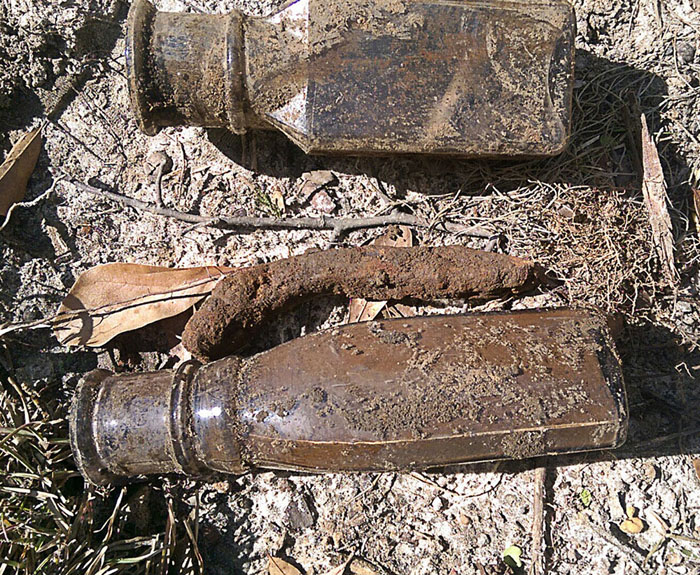Archeological study under way at Civil War prison site
Published 5:39 pm Thursday, February 18, 2016

- Initial soil samplings by SEAC show promise for the site, as two iron pens and two intact bottles from the 19th Century were uncovered a few feet below the surface.
THOMASVILLE — The City of Thomasville’s latest efforts to ascertain additional details about the use of the Civil War prison site in 1864 will be enhanced through combined efforts of the Southeast Archeological Center and the Federal Bureau of Investigation.
The FBI and SEAC begin a thorough examination of the historic Prisoner of War site on Wolf Street to determine if 19th century artifacts and unknown burial sites lay beneath the surface.
City of Thomasville Senior Assistant City Manager Kha McDonald said the work being done is significant to the community’s historic preservation efforts.
“Having the FBI and the Southeast Archeological Center serves to draw attention to the rich history of Thomasville and the role that our community played during the Civil War,” McDonald said. “By bringing in experts, we’re able to paint a more complete picture of the history of the Prisoner of War site, a more detailed glimpse into the past.”
Initial soil samplings by SEAC have shown promise for the site, as two iron pens and two intact bottles from the 19th century were uncovered a few feet below the surface.
“Our first dig was actually just to get a sampling of what the layers of soil in the site looked like,” said McDonald. “We picked out an unassuming location where ground-penetrating radar had indicated little interest. At first, we found a more recent glass baby food jar, but then, as we got down a little further, we uncovered a hidden treasure. Everyone was really excited that the preliminary findings showed such great potential for discovery.”
Prior exercises within the site by search and recovery dog teams and ground-penetrating radar showed the POW site might be the final resting place for historic remains. As a result, the FBI is interested in using the site for training for evidence response teams (ERT).
Each year, members of the FBI’s ERTs respond to hundreds of crime scenes nationwide, including incidents of violent crime, terrorism and public corruption, among others. The teams are extensively trained in the collection, development and identification of latent prints, DNA, human remains and post-blast evidence. Techniques used during active investigations can be very similar to those used to process historic sites, like the Civil War Prisoner Of War property in Thomasville.
“Participating in this exercise will give members of the ERT an opportunity to gain additional experience in forensic science, crime scene management, and the location, recovery, and documentation of physical evidence. That experience will help us better protect our local communities, and provide greater assistance to our law enforcement partners in the future,” said Michelle S. Klimt, special agent in charge, FBI Jacksonville Division.
Southeast Archeological Center members will catalog and clean findings, which will be returned to the City of Thomasville, where they will likely be displayed for public viewing at the Thomas County Historical Society.
“The archeological study of Thomasville’s short-lived Prisoner of War Camp is tremendously exciting. The introduction of newer technologies like ground-penetrating radar, along with traditional techniques like cadaver-sniffing dogs will greatly enhance our collective knowledge of the events that took place there in December 1864,” said Ephraim Rotter, Thomas County Historical Society curator.
“The best part about what we are doing is that it furthers the city’s historic preservation initiatives without incurring costs for the City of Thomasville,” McDonald said.
Work will continue at the POW site for about two weeks. During that time, FBI teams from Jacksonville and Tampa will be on-site for about three days.





